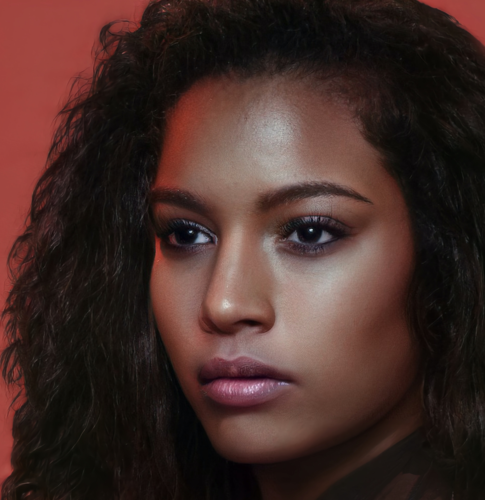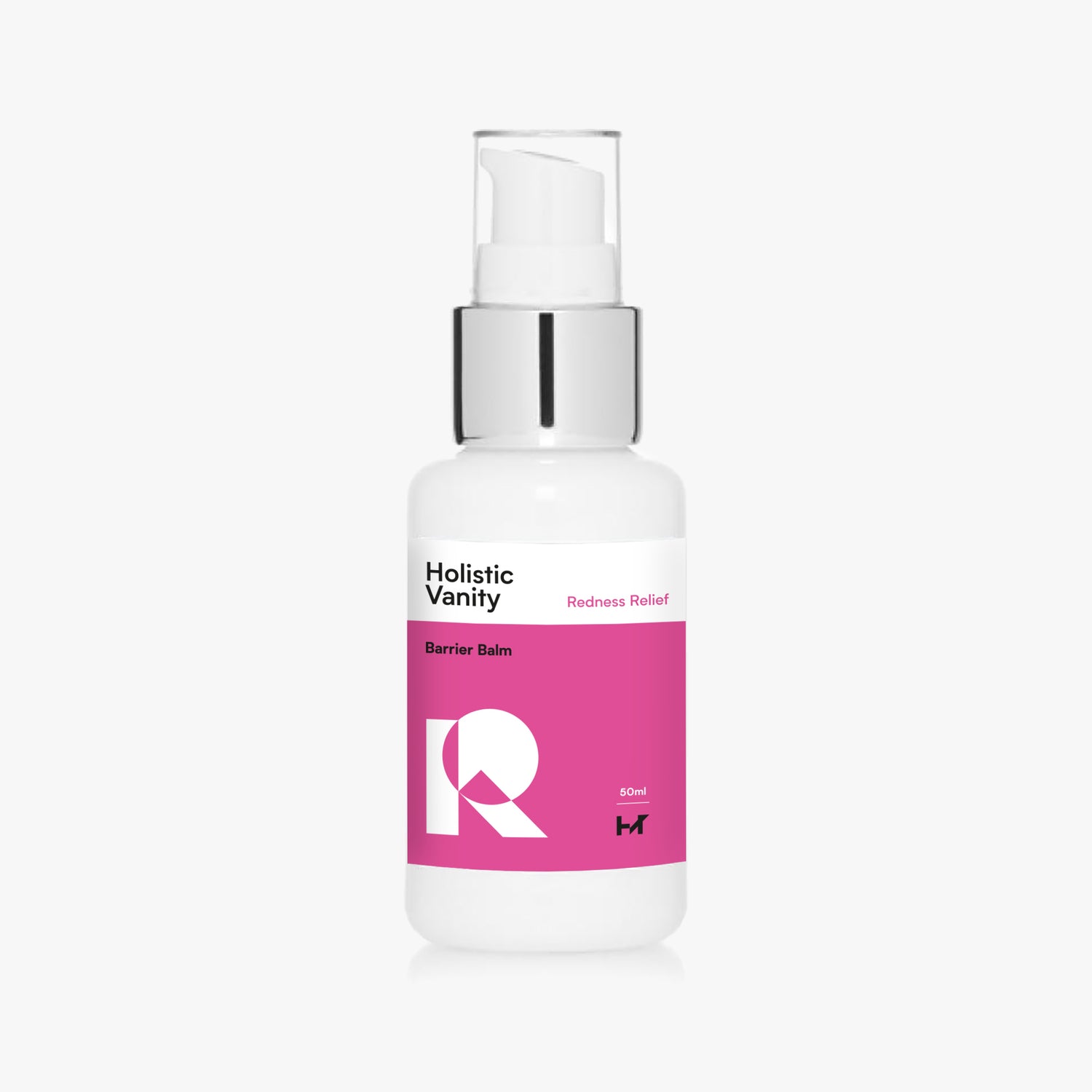
Confused About Your Skin? Here's what ACTUALLY matters
Share
Forget everything you think you know about skin.
Bold statement, we know, but we think old skin typing rules are detrimental and miss the point.
Traditional categories of dry, oily and combination only looks at degrees of oil, which is ridiculous. Plus newer diagnostic terms of "sensitive skin", "reactive skin" or "problem skin" tell us what we already know. Duh, I know I have acne/rosacea/blah blah.
What actually matters when it comes to analyzing your skin?
As skin pros with two decades of looking at complexions, it's all about relationships. In particular, we've found what really matters is our oil-to-water relationship....and protein but we will get to that later.
This balance is what will really lead to balanced, beautiful skin.
It's not just colour or redness or if you've got shine, it's about skin resilience and immunity based on these relationships.
However, most do not understand oil-to-water balance and we have seen lots of clients cause major imbalance because of their misconceptions.
Many people with oil on the surface of their skin are actually dry-skinned with a self-induced oil over-production.
The opposite can also happen - some attempt to treat dryness by slathering on oil-rich products when they really suffer from dehydration: a lack of water.
In the most basic terms, healthy skin is a healthy balance of oil and water, allowing the skin tissue to do its job: be a barrier, absorber, eliminator and regenerator.
When we know whether it's oil or water (or both) we lack, it’s easy to make decisions to correct this imbalance.
Below is a quick guide to diagnosing your skin and tips on how to treat its condition. Just to clarify, we are going to be talking about natural vegetable oils (organic, unprocessed ones are even better) and water (preferably plant-waters). Chemically-based systems will only further imbalance the skin because of their stripping and congesting properties.
But wait!
A note about Protein:
Okay, so we talked about the major water and oil relationships but what about protein? Yes. Our skin is made up of water, fat and protein, so our skincare should reflect this. Just like the guide below, where we discover what our skin is lacking and supplement for it, protein-poor skin also needs a dose of protein.
How do you know if you need protein? You need protein when you have skin tissue damage. This can be sun damage, pollution damage or trauma. But you can tell with your skin's texture; if its not smooth or if it has poor barrier function.
If you're highly reactive, we would also go out on a limb to say that your skin could benefit from some protein repletion.
This is a big problem, and may be why people aren't obtaining the desired results despite trying many many skincare variations. This is why we developed our Lupine Protein Serum, which is waterless and super-concentrated. It's packed with protein and dosed with hyaluronic acid. Truly fortifying.
Oily Dehydrated
We have seen SO MUCH oily dehydrated skin. It feels tight, yet is greasy, and sometimes it even flakes when there’s oil on its surface.
This is also seborrheic dermatitis. But that's just a name....we need to make use of our terms. What we are really saying (labels or not) is that this skin type is prone to pore-congestion because its oil hardens due to the underlying dryness.
A common error is to think that oily skin doesn't need be moisturized.
In fact, they need A LOT of hydration to prevent them from producing more oil. Oil is over-secreted to compensate for lack of water. So, skin dehydration can be a trigger for acne.
During a facial, extractions are difficult to remove if oil has hardened to the walls of the pores.
In this case, the client needs to follow a hydrating regime for at least two weeks before returning for a successful pore-cleansing.
Daily routine Essentials:
1. A milk cleanser. This is best because astringents encourage oil-production. If a gel cleanser is preferred, it must be gentle. We love our Rosewater Cleansing milk wash.
2. An alcohol-free toner like our Pine Mint Tonic. This will purify skin without drying it.
3. A serum for extra water. Our Hyaluronic Lupine Protein Serum above is a major fav but you can also use our Brightening Hyaluronic Lotion (a serum-oil-fluid combo). It's awesome for restoring balance.
4. A medium-weight moisturizer to slow dehydration and soften the skin’s surface. If you have Acne, try our Black Mud Turmeric Lotion...it's specifically formulated for oil modulation.
Oily Hydrated
This is the true oily skin type.
It still needs protection to maintain its beauty. Any comedones (blackheads, whiteheads) can easily be extracted and this skin type ages well.
Daily routine Essentials:
1. A peel once or twice a week to slough away buildup and impurities. Our Black Currant Peel is so gentle and peels without disrupting your barrier function.
2. A VERY light moisturizer is ideal. Serums or our Brightening Hyaluronic Lotion on its own can be perfect to maintain moisture during warm, humid months.
Dry Dehydrated:
This is the oil-dry, water-dry skin type. Classic dry dry dry skin.
Hydration is lost too fast through evaporation and/or aging (loss of collagen). Both oil and water are needed. This skin needs a whole lotta surface supplementation.
Comedones, if any, are tiny, tight and difficult to extract.
Daily routine Essentials:
1. An anti-aging serum. You need our Hyaluronic Lupine Protein Serum. Or if you're so dry, you're sensitive, our Deep Calm Serum is ultra-soothing and hydrating.
2. A rich, nourishing cream. We must nourish, nourish, nourish. An emollient cream will also seal in the water from the serum.
Dry Hydrated
This skin, which is genetically oil-dry, usually occurs in younger people.
It has small pores and looks thin but is actually healthy and plump with water. Because its surface is dry, it needs oil.
Daily routine Essentials:
1. A face oil to lubricate the skin’s surface and serve as a protective barrier. This is why some people are perfectly fine just using olive oil as a moisturizer....and also why when the rest of try it, our skin still looks like garbage.
Combination Dehydrated
This skin is oily in the T-zone, but dry in other areas of the face where water is needed.
Daily routine Essentials:
2. A serum and a medium-weight cream. You can even mix them or apply each to a specific area depending on need.
Combination Hydrated
This skin type is generally healthy, perhaps with excess oil in the T-zone. As above, the flexibility of a serum and a cream is great. It doesn't need a ton of help.
Sure, it's combo, but just blot if you're getting your picture taken. Otherwise, it's pretty perfect skin.
Also, regular facials are recommended to clear the pores of the T-zone without over-peeling or drying the skin.
Normal skin
Why do they call it normal? We should celebrate and call it lucky ducky skin!
Normal (ahem aka awesome) skin only needs gentle maintenance to prevent imbalances.
Using a natural skincare line is important to prevent inducing other skin types.
Image: Art Hauntington via Unsplash

